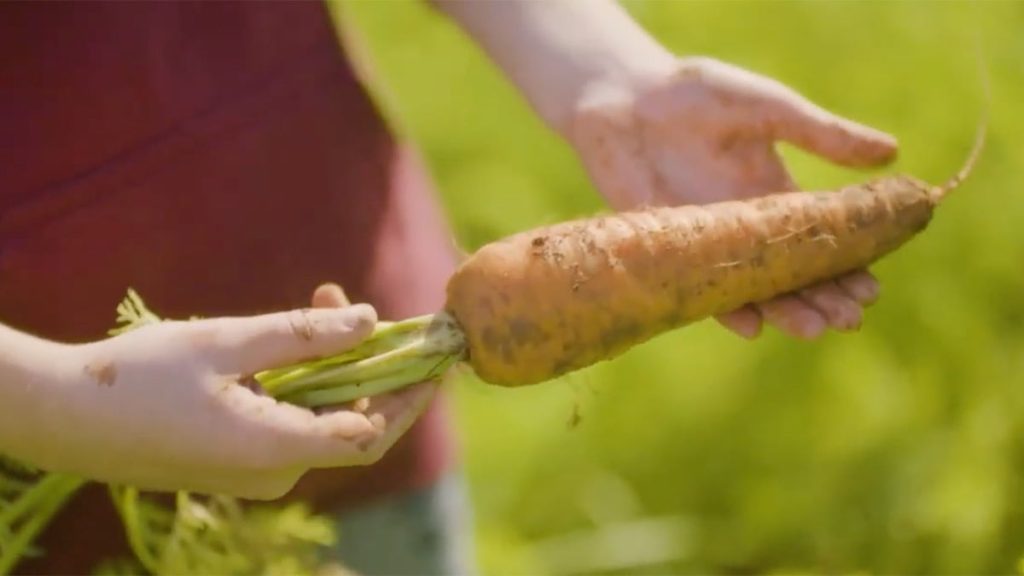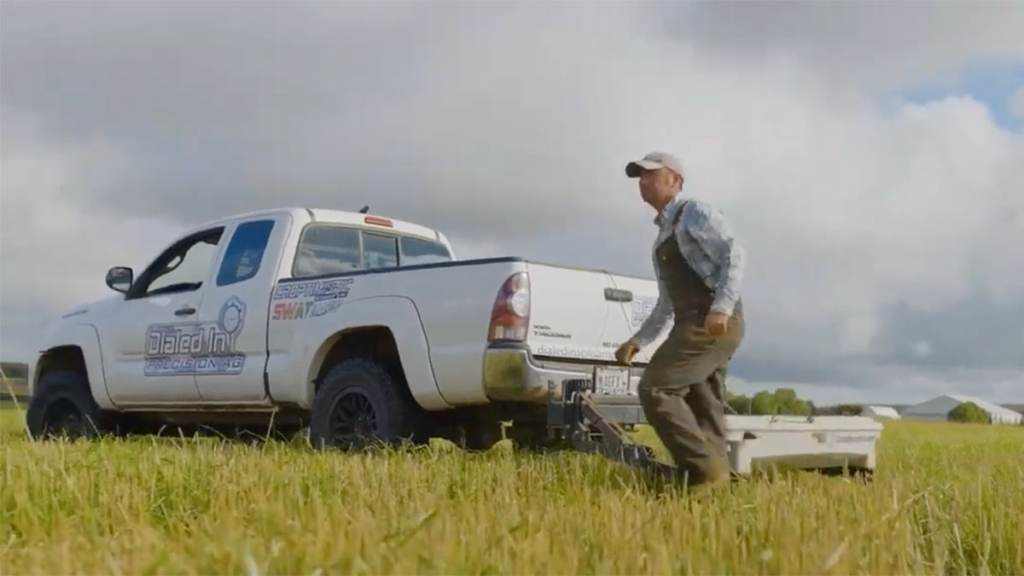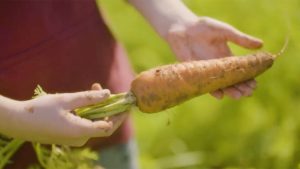by Trevor Bacque
It wouldn’t be a true meal without a few carrots, would it? Certainly not in the homes of many Canadians. That’s because this prolific orange vegetable is one of the most widely known and grown across the country, whether in window boxes, backyard gardens or at professional farms. Commercially, the largest-producing provinces of carrots are Ontario, BC and Quebec. You can also find them at the Bunny Burrow Vegetable Company at Kinkora, Prince Edward Island.

A multi-generational family farm run by Gordon and Andrea McKenna, they also grow potatoes and turnips.
The McKennas, like everyone else, start their carrots from seed, before planting starting in mid-March. They grow carrots very close together to better ensure the roots will grow straight and not crooked. Throughout the summer growing season, they keep a watchful eye on the crop to ensure healthy growth that is free of weeds, diseases and pests.

There are countless carrot varieties to choose from, but the McKennas prefer the aptly named Volcano, which has a strong crown with a large amount of foliage. Beyond that, its robust nature means they virtually never break during harvest.
“It tends to grow at a more rapid pace, therefore there’s a smaller growth window,” says McKenna. “We can harvest earlier and it’s not as susceptible to certain pests that, in the past, have caused a lot of damage.”
Keenly aware that not all fields are the same, or even areas within a single field, the McKennas take great care to monitor soils through sampling and digital documentation. By understanding where more and less productive areas are in a given field, they can more accurately focus their time and attention. In less productive, low-lying areas, they have actually converted some of the fields back into natural wetlands habitats.

“It’s not just the health of the plant,” says Andrea. “We’re also looking at the health of the whole environment.”
Their carrots are mechanically harvested, just the way potatoes or wheat would be. A machine lops off the leafy tops before they are moved to the next phase of harvest. This is done because even though they are pulled from the ground, the carrot is still alive. By removing the top, it effectively halts growth. (Some carrots’ tops are harvested and sold at fresh markets, and those types of carrots are harvested earlier than those that have their tops removed).
Next, they are graded, sorted, washed, refrigerated and stored until ready for sale. Depending on their end use—baby carrots, packaging for grocery stores, bulk carrots for food processors or processed carrots that are sliced, shredded, frozen or juiced—they are further segregated into different storages. Typically the freshest between August and January, the carrot is an indispensable and healthy component of many Canadian diets. Ideally, farmers prefer carrots that are seven to 10 inches long and one to two inches in diameter at the shoulder (top).
“I take great pride when I see my kids pulling a carrot out of the field and eating that carrot… that we created it and grew those products,” says Andrea.
DYK: The single-most productive crop-growing region in Canada is Holland Marsh, a 7,000-acre area of land between Toronto and Barrie, in southern Ontario? Home to more than 40 different specialty crops grown in rich black soil, carrots are the main attraction. Every year, Holland Marsh’s farmers collectively grow enough carrots to feed every single Canadian—that is four pounds of carrots per person!



 What Is Supply Management?
What Is Supply Management?